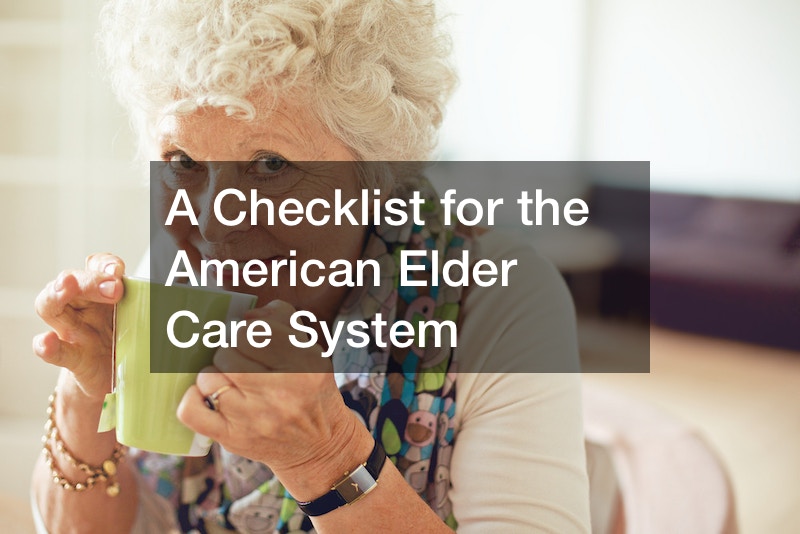Elderly parents require proper care and more love from families and relatives. Indeed, they deserve it because they took care of you when you were young and innocent. It should always be a priority to create a happy, comfortable, and secure life for the elderly. The following are some of the valuable tips and hacks that you should consider during elder care and more:
Research Some Reputable Attorneys
Researching reputable attorneys is a critical step when offering elder care and more due to the intricate and sensitive legal nature of such matters. These attorneys possess specialized expertise in estate planning, healthcare, and guardianship, ensuring that elderly individuals receive accurate advice and proper legal representation. Their guidance safeguards the rights and well-being of the elderly, making the research process essential.
Within elder law, various types of attorneys fulfill distinct roles. For example, elder law attorneys provide comprehensive guidance on issues ranging from estate planning to elder abuse. On the other hand, estate planning attorneys focus on creating legally sound documents to ensure smooth asset transfer post-death. While a typical Social Security disability attorney specializes in helping individuals seek SSDI benefits, you require probate attorneys to manage the legal process of estate administration.
Social Security disability attorneys are essential when an elderly person’s ability to work is impaired due to a disability. These attorneys navigate the complex SSDI (Social Security Disability Insurance) application process, offering guidance to enhance the likelihood of approval. If an initial application is denied, they assist with appeals by presenting a compelling case and interpreting intricate regulations. Their expertise in gathering and presenting medical evidence is vital in securing deserved benefits for the elderly.
Ensure That Your Loved One Has Healthy Teeth

Maintaining healthy teeth during elder care and more is crucial for their well-being and dignity. Healthy teeth ensure proper nutrition, aiding comfortable chewing and digestion. Clear speech hinges on oral health, as decayed teeth can lead to communication difficulties. A confident smile, closely linked to self-esteem, encourages social engagement. Moreover, oral health directly impacts overall health, preventing complications from oral infections.
Key dentistry services during elder care and more include dental cleanings to prevent gum disease and cavities, thorough oral examinations for early issue detection, and restorative dentistry like fillings and crowns for damaged teeth.
Periodontal care addresses gum disease, which is crucial for oral health and well-being. Remember that proper denture care is crucial in preventing gum discomfort and sores. Also, encourage hydration and a balanced diet while considering medications’ impact on oral health.
General dentistry stands central in elderly care, offering tailored services to seniors’ specific needs. Beyond treating dental problems, it emphasizes prevention and maintenance. Regular dental appointments address issues and provide early intervention, preserving an elderly person’s quality of life by safeguarding their oral health.
Inquire About Different Dental Procedures
Dental procedures for the elderly cover a spectrum of options that cater to specific needs and contribute to oral health and overall well-being. Dental crowns restore severely damaged teeth, while dental implants provide a sturdy foundation for replacement teeth. Dentures, both full and partial, are removable options for missing teeth.
In terms of costs for these dental procedures, they vary by factors like location and complexity. Dental check-ups and cleanings can range from $75 to $200, while dental fillings may cost between $100 and $300 per tooth.
The cost of dental crowns, which typically aim to provide functionality and aesthetics, can range from $800 to $1,500 per crown. Dental implants, a solid alternative for missing teeth, are priced between $1,500 and $3,000 each.
A dental bridge becomes necessary when missing teeth affect chewing, speech, or oral health. It relies on adjacent teeth for support and might be recommended if dental implants are unsuitable. Dental bridges help maintain facial structure, as missing teeth can cause changes over time.
Ask About Dental Implants

Inquiring about dental implants in elder care and more is paramount. Its significance is underscored by its connection to overall health. Dental implants improve nutrition, preserve bone structure, and enhance the quality of life for the elderly. Elderly individuals commonly need implant dentistry due to tooth loss, reduced bone density, and medical conditions. Dental implants offer a permanent solution for missing teeth.
Unlike traditional dentures, implants stimulate bone and provide stability, accommodating aging-related bone density issues. Implants are adaptable to various health considerations and restore proper chewing, aiding nutrition.
The dental implant process comprises distinct steps. Assessment involves evaluating bone density and suitability. The surgical phase inserts a post in the jawbone, followed by osseointegration, where the bone fuses with the implant. Subsequently, an abutment connects the implant, and the final step is adding a custom crown that matches natural teeth, delivering a seamless appearance.
Make Sure Your Loved One Visits an Optician Regularly
As individuals age, they commonly experience a range of eye problems such as presbyopia, cataracts, age-related macular degeneration (AMD), glaucoma, and dry eye. To address these issues, regular visits to an optician become essential.
Elderly individuals often face symptom-free eye problems, making early detection crucial. Optician visits aid in detecting eye issues early, updating prescriptions, managing chronic conditions like diabetes that affect eye health, and monitoring eye pressure for glaucoma.
Optician services for the elderly encompass comprehensive eye exams, prescription adjustments, cataract evaluations, AMD screenings, glaucoma testing, and dry eye management. These services address the evolving needs of seniors’ eyes, ensuring optimal vision and eye health.
The frequency of optician visits while providing elder care and more varies based on individual circumstances. Generally, individuals aged 60 and above should have comprehensive eye exams every 1-2 years, while those with existing eye conditions might require annual check-ups. Sudden vision changes warrant immediate attention.
Visit a Dermatologist Regularly

As people age, their skin faces various challenges. Skin dryness, thinning, and vulnerability to sun damage are common. Actinic keratoses, potential precursors to skin cancer, can emerge due to prolonged sun exposure.
It’s important to note that the risk of cancers such as basal cell carcinoma, melanoma, and squamous cell carcinoma increases with age. Benign growths like seborrheic keratoses and persistent itching also become more prevalent.
Both internal factors, like genetics and the natural aging process, and external factors, like sun exposure, contribute to skin issues. Intrinsic factors include reduced skin barrier function and slower cell turnover due to age. Accumulated sun damage from years of exposure is a primary extrinsic factor, damaging skin cells and DNA, and leading to various skin problems.
Regular visits to a dermatologist hold vital benefits for the elderly. Early detection of skin cancers through routine screenings can lead to timely treatment and better outcomes. Dermatologists help manage chronic conditions such as psoriasis and eczema, enhancing the quality of life for seniors. Additionally, preventive guidance and personalized skin care advice provide both elder care and more while averting new skin problems.
Dermatology services for the elderly encompass a range of interventions. Skin cancer screening aids in spotting worrisome growths, while cryotherapy addresses benign issues like warts.
Topical skin treatments like antihistamine creams combat conditions like eczema, and phototherapy employs controlled UV exposure for managing psoriasis. Biopsies, laser therapy, and wound care are custom-tailored skincare solutions. They ensure optimal skincare routines, sun protection, and lifestyle adjustments.
Look Into Installing a Wheelchair Ramp
A wheelchair ramp is a sloped surface designed to provide easy access for people with mobility challenges, such as those who use wheelchairs or walkers. It enables them to navigate changes in elevation without assistance. Wheelchair ramps are vital for promoting independence and inclusivity.
For elder care and more, wheelchair ramps enhance independence, as seniors can move freely without relying on others. Ramps also improve safety by reducing the risk of falls and accidents. Access to the outdoors and social spaces contributes to a better quality of life, positively impacting physical and mental well-being.
As you plan for wheelchair ramp installation, determine the ramp’s location, whether it’s for a private home or a public building. You also have to ensure the ramp meets legal and accessibility standards set by local regulations.
The choice of material used to make wheelchair ramps is important for durability and efficiency. The slope and length of the ramp must be carefully calculated for usability and safety, with options for handrails and non-slip surfaces to enhance safety features.
While DIY kits are available, opting for professional wheelchair ramp installation is recommended to guarantee compliance with safety standards. A clear budget that covers materials, labor, and potential additional features is essential. Check if any permits are required before starting installation. Finally, regular maintenance is necessary to keep the ramp in good condition.
Assess the Possibility of Assisted Living

Assisted living is a senior housing option that bridges independence and nursing care. It
helps older individuals who need help with daily tasks without full medical care. Assisted living services offer safety, social interaction, personalized assistance, health monitoring, and balanced meals.
When it comes to elder care and more, assisted living matters as it ensures safety through features like emergency systems. Socially, it fights isolation via activities and communal spaces. Personalized care plans manage health and daily needs. Nutrition, housekeeping, and transportation aid overall well-being.
Essential assisted living services include guidance and support with daily tasks, medication management, health monitoring, and social and recreational activities. Dining services, housekeeping, and 24/7 staff availability ensure comfort and safety.
Evaluating assisted living involves thoroughly checking for health, daily tasks, isolation, safety, caregiver stress, preferences, finances, and future needs. It’s vital to consider the senior’s well-being, involve them in decisions, and plan for potential changes in care requirements.
Discuss the Importance of a Will
A will is a legal document outlining how a person’s assets are distributed after their death. Creating a will ensures wishes are followed. In elder care and more, discussing a will is vital for clarifying asset distribution, providing for dependents, and addressing medical decisions. This avoids conflicts and secures the well-being of loved ones.
Key aspects of a will include naming an executor to carry out instructions, designating beneficiaries, and appointing guardians for minor children. It also covers asset distribution and considers outstanding debts and taxes. The will’s validity is determined by meeting legal requirements and going through the probate process.
Overall, emphasizing the importance of a will during elder care and more is crucial for safeguarding the elderly person’s desires, minimizing family disputes, and ensuring a smooth transition of assets. This legal document clarifies a complex situation, providing reassurance and structure for both the elderly individual and their family.
Consider a Plan for a Future Funeral
Caring for the elderly involves health, mobility, and emotional well-being. It addresses safety, nutrition, social interaction, and legal and financial matters. Funeral planning might appear weird, but it’s paramount to lessen family burdens, assure wishes, and prepare dependents financially.
Proper funnel panning is also vital for ensuring personalization and reducing family conflicts. A funeral plan includes service type, location, casket/urn, and service details. It entails obituary info and a contact list. Legal documents and regular updates are vital.
To execute a funeral plan, select a provider aligned with your wishes. Share the plan with the family and the chosen provider. Keep copies in a secure spot and inform a trusted person. You must also allocate funds through savings or insurance as you periodically review and update the plan. Open conversations with family ensure understanding.
Offer Cognitive Stimulation and Respite Care
Cognitive stimulation plays a crucial role in maintaining mental acuity. Engaging in activities like puzzles, games, and hobbies can keep the minds of the elderly sharp. Memory aids like calendars and reminder apps help navigate memory challenges. Social engagement is equally important. Encouraging participation in clubs and social groups and using technology for virtual interactions can effectively combat feelings of isolation.
Respite care is vital for caregivers. Regular breaks prevent burnout, and considering professional help can provide temporary relief. Financial management and fraud prevention are crucial aspects too. Assisting with budgeting and raising awareness about scams safeguards their financial well-being.
Remember, providing great elder care and more is a unique journey for each individual, so tailor these tips to the needs and preferences of the elderly person you care for. Regular communication with the elderly and medical professionals will help you provide the best possible care.


